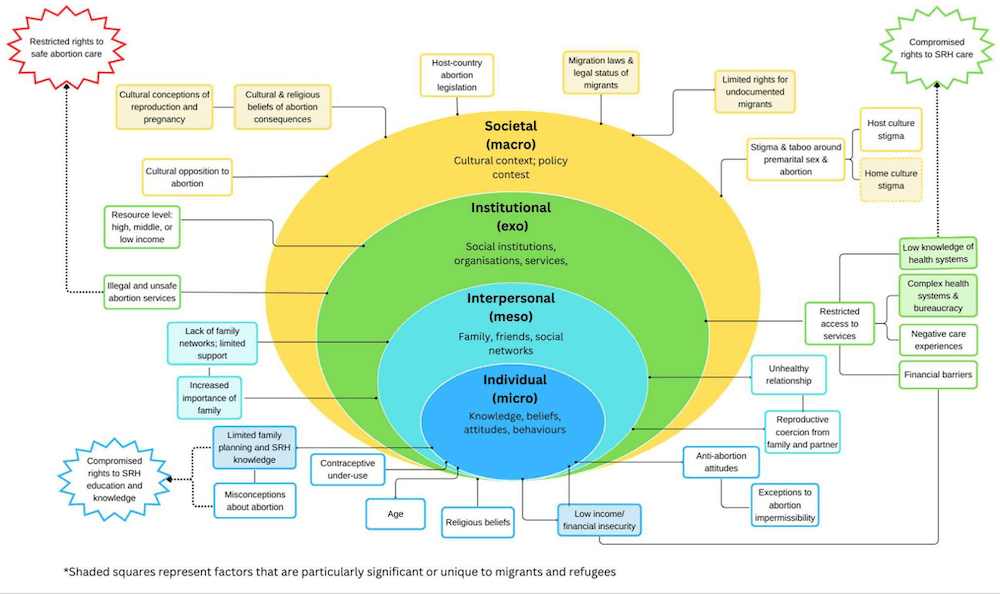
by Sharanya Napier-Raman, Syeda Zakia Hossain, Elias Mpofu, Mi-Joung Lee, Pranee Liamputtong, Tinashe Dune
International Journal of Environmental Research and Public Health. March 2024
Abstract
Background: Access to abortion care is a crucial reproductive health right. Refugees and migrants may have restricted access to and utilisation of abortion care, associated with histories of displacement, precarious migrant and citizenship status and difficulty navigating unfamiliar host country healthcare systems. However, there is limited evidence on the abortion experiences and perspectives of refugees and migrants. Moreover, existing research has not been synthesised to identify trends informing sexual and reproductive care access among this marginalised population. This systematic review aimed to address this gap in the cumulative evidence on refugee and migrant experiences and perspectives of abortion in host countries.
Methods: Following the Preferred Reporting Items for Systematic Reviews and Meta-Analyses (PRISMA) guidelines, we searched the following databases for studies on refugee and migrant abortion attitudes, decision making and experiences: Embase, Medline, CINAHL, Web of Science, Sociological Abstracts, and Scopus. We also searched the grey literature on the same. Inclusion criteria specified qualitative studies involving migrant and/or refugee populations, examining their abortion experiences, attitudes or perspectives, written in English, published between January 2000 and December 2022. Two reviewers screened titles, abstracts and full-text articles, resulting in 27 articles included in the review, following consensus checks by two co-authors. The included studies were assessed for methodological quality using the Critical Appraisal Skills Programme tool.
Results: Abortion was stigmatised and generally considered impermissible and undesirable. However, participants discussed socio-culturally determined ‘exceptions’ to this, positing circumstances where abortion was acceptable. There were striking differences in experiences between participants in higher-income settings and those in lower- and middle-income settings. Difficulties accessing care were ubiquitous but were heightened in lower-resource settings and among participants with precarious citizenship, financial and legal statuses.
Conclusions: The findings highlight the need for an international convention to guide policy and programming that acknowledges the specific abortion requirements of migrant and refugee communities, with attention to their financial, legal and social precarity.
Editor’s note: This is an unusually detailed and comprehensive study well worth reading in full. A very complex picture emerges, and not only shows how little control women migrants and refugees have over their lives, let alone the means to prevent unwanted sex and pregnancy, but also how little has been done to provide them with the health care information and services they need. The article takes us totally outside the feminist advocacy circles, feminist managed provision of abortion pills, and perceptions related to a rights-based demand for safe abortion that we are mainly involved in. It also raises serious questions about the unacceptable way in which all migrants and refugees are treated in today’s world in spite of the rapidly increasing numbers of people in those situations, which is going to be increasingly exacerbated by climate crises as well as political upheaval. Well worth reading in full.
SOURCE: RAISE/IAWG Literature Review, 8 April 2024



